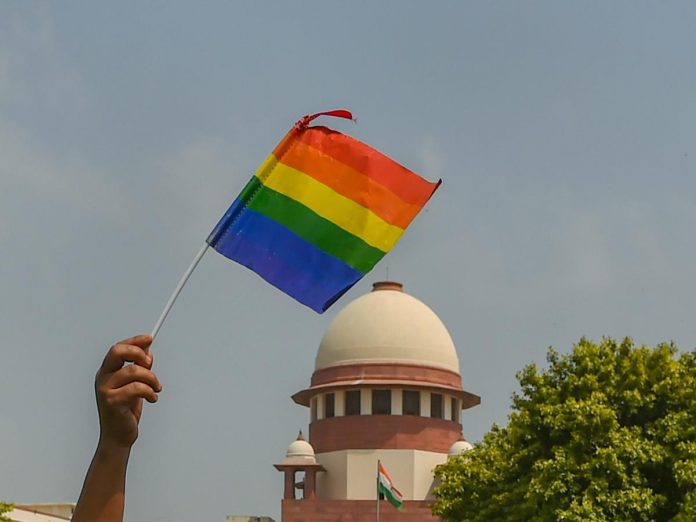This article has been written by Jeffy Johnson, student of School of Law, Christ (Deemed to be University) Bangalore.
Table of Contents
Introduction
The apex court of Singapore held that Section 377A of the Penal Code that penalizes homosexuality as a criminal offence as not unconstitutional. The presiding Justice of the bench was Justice See Kee Oon stated that Section 377A serves the role and duty of protecting and safeguarding public morality. Section 377A of the Penal Code is as follows:
“Any a male person who, in public or private, commits or abets the commission to procure the commission by any male person of, any act of gross indecency with another male person, shall be punished with imprisonment for a term which may extend to 2 years.”
As it showcases society’s moral disapproval of male homosexual acts. On the same time, it reflects public beliefs and sentiments. In 2014 the court saw that in an appeal in Lim Meng Suang and Another v Attorney-General. It stated that gross indecency between men in public or private is a criminalized act. It does not infringe Article 12(1) that is right to equality. It also is not violative of Article 9(1) and Article 14 of the Constitution. This decision was bound by the doctrine of vertical stare decisis in Singapore. It was held by the court that the petition filed by Ong Ming Johnson who sought that Section 377A was inconsistent with Article 9(1) and Article 12(1) of the Constitution was disposed of. There were two other petitioners Choog Chee and Dr Tan Seng Kee who was seeking the same relief.
Constitutionality of Section 377A
The vital main of Section 377A is to safeguard and protect public morality. It ensures effective enforcement of law and order. It facilitates the prosecution of all male homosexual acts. Firstly, whether penetrative or not. Secondly, whether private or public. Thirdly, whether commercial or not. Fourthly, without consent or with. The primary purpose of Section 377A was to highlight the societal disapproval of all male homosexual acts this way to protect public morality. The sexual orientation showcase and forms an individual’s identity. It holds its affiliation to the consensus in the community of science. Which states that without any precise cause sexual orientation cannot be altered. Section 377A is violative to Article 9(1) of the Constitution. This Article provides that individuals can only be deprived of personal liberty by the law. An absurd law cannot be considered as the law itself.
The High Court rejected this interpretation of Section 377 A on the following grounds. The vital claim made by the court was that sexual orientation was an extra-legal that was beyond the Court’s ambit. Then there was no scientific evidence that showed that homosexuality was immutable or mainly caused by biological factors. Thus Section 377A did not penalize male homosexuals for their identity but penalized them for their homosexual acts. The court believed that heterosexual male can also be punished under Section 377A. It was argued that Section 377A is arbitrary as its main purpose was not to enforce the law proactively. This argument questions the Government’s policy was rejected by the High Court as the non-enforcement of this section was not relevant to the claim of its constitutionality. It is viewed that the section serves the duty of protecting public morality.

Traditional Judicial Review
In the Indian case of Anuj Garg and others V Hotel Association of India: “the court held that legislation should not only be assessed on its proposed aims but rather on its implications and effects.” This was not followed by the Singaporean Court. The Court stated that the trade-off between the dignity and identity of the homosexual males are safeguarded under Article 9 for the continuance of obsolete principles of judicial review. It highlights that sexual orientation is a vital part of the identity.
Significance of Article 12 and 14 of the Constitution
Article 12 and Section 377A
It is further contended that Section 377A is contrary to Article 12(1) of the Constitution. Which provides all individuals are equal before the law and entitled to the equal protection of the law. The High Court did not approve of this constitutional argument. On the basis, it is not applicable as a legal test. In other words, the test states that a discriminatory law is a good law if the grounds of such discrimination is on reasonable classification. That the classification should be based on an intelligible differentia and at the same time this differentia should possess a rational relation.
Then it can be said that the objective and purpose of the law is achieved. The High Court stated that the rational ration between Section 377 A differentia that is male homosexual conduct as opposed to female homosexual conduct. The object to this is to safeguard public morality and criminalizing male homosexual conduct. Therefore, it can be stated that the section is neither under-inclusive nor over-inclusive. That is by excluding female homosexual conduct and other conduct that harms public morals like adultery nor by including private conduct does not harm public morals.
Section 377A is not violative of Article 12 of the Constitution as it was not under-inclusive or over-inclusive in nature. It is more certain to take up a broader test of proportionality for Article 12(1) of the Constitution. Then the question which is debated is whether Section 377A was consistent with the reasonable classification test in connection with Article 12 of the Constitution. Article 12(1) lays down a reasonable classification test. The key inquiry comparable to whether there is an intelligible differentia is in the case of focusing on a sexual lead between guys is so absurd as to be irrational and additionally incomprehensible. Taking into account that qualifications have been drawn among people in different territories inside Singapore law, the differentia received in section 377A can’t be said to be so preposterous to such an extent that it is indiscernible.
There are constraints to the sensible grouping test to the extent that it works as a limit request. The courts ought not to receive a more extensive trial of proportionality according to Article 12(1) of the Constitution as this would essentially involve the danger of the courts usurping the authoritative capacity or acting like a “mini legislature”. The courts should not mull over extra-legitimate contentions, paying little heed to how substantial or conceivable they may appear to be. In the Supreme Court of India Judgment in Navtej Singh Johar v Union of India highlighted the majority opinion and public morality cannot dictate constitutional rights. But the Singaporean Court did not abide by this rule. It opposed the interpretation of Article 12(1) as it was violative to the dictum of their Parliament.
Article 14 and Section 377 A
It is contended that Section 377 A is violative of Article 14(1)(a) of the Constitution. This Article guarantees every Singaporean the right to freedom of speech and expression. It prohibits male homosexuals from showcasing love and personal closeness with their mate. It is argued that all individuals not taking to consideration of their sexual orientation can the right to express love to their mate through consensual acts of sexual intimacy in private, The High Court rejected this constitutional argument on the ground that freedom of speech and expression only entertained and include verbal communication. It did not over sexual expression.
Section 377A doesn’t disregard Article 14(1)(a) of the Constitution. The privilege to the opportunity of articulation contained in Article 14(1)(a) must be comprehended to identify with the privilege to the right to speak freely of discourse, incorporating matters of verbal correspondence of a thought, assessment or conviction. Regardless of whether s 377A damaged a non-derivable right to opportunity of articulation under Article 14 of the Constitution. Section 377A didn’t disregard Article 14(1)(a) of the Constitution. The privilege to the opportunity of articulation in Article 14(1)(a) of the Constitution identifies with the privilege to the right to speak freely of discourse i.e. the verbal correspondence of a thought, assessment or conviction. The minimal note to Article 14, the structure of Article 14 just as standards of legal development shows that opportunity of articulation is anything but a detached right separated from the right to speak freely of discourse. This is additionally bolstered by the Report of the Constitutional Commission 1966. Section 377A was just expected to condemn business and non-penetrative gay action between men, in light of authentic and administrative material about its birthplaces.
Conclusion
The LGBTQ community throughout the ages have been preys of the pre-dominant morality. This scheme was prevalent when the Penal Code was drafted and enacted. It is difficult to differentiate right and wrong in history as the human race was just evolving itself. But we as individuals can set the path of future in the right course. In modern times we have witness countries like India, Bhutan and Botswana who have decriminalized homosexual acts. Understanding the plight of this community the law should be more accommodative and safeguard their rights too.
LawSikho has created a telegram group for exchanging legal knowledge, referrals and various opportunities. You can click on this link and join:
https://t.me/joinchat/J_0YrBa4IBSHdpuTfQO_sA
Follow us on Instagram and subscribe to our YouTube channel for more amazing legal content.
 Serato DJ Crack 2025Serato DJ PRO Crack
Serato DJ Crack 2025Serato DJ PRO Crack










 Allow notifications
Allow notifications


